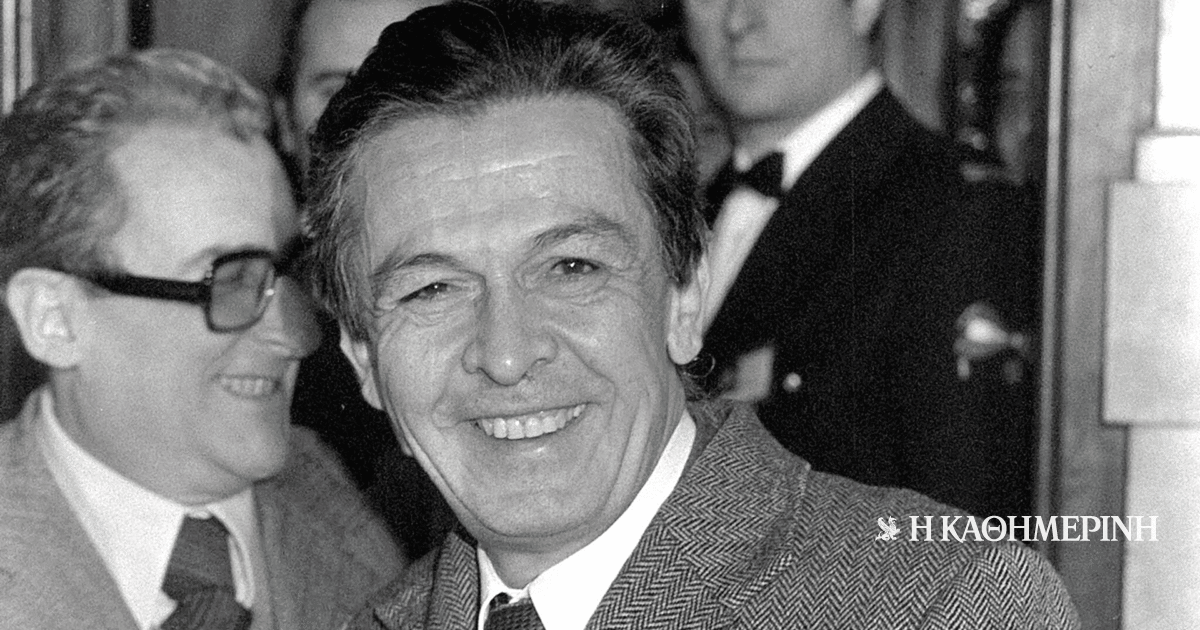Georgio Gaber, one of the most iconic Italian artists of the 20th century, in a well -known monologue in the distant 1991 entitled “Qualcuno era comunista”, said: “Someone was a communist because the cinema required it, A good man … because he was so fascinated by the workers who wanted to be like them … because he could no longer be a worker … “.
Indeed, Enrico Berlingue was a good reason to be a Communist in Italy in 1960-1970. A noble form, with not a humble social origin, but dedicated his life to the political battle in favor of the most weak. He was secretary of the Italian Communist Party (PCI) from 1972 until his death, on June 11, 1984, a few days after he collapsed during a pre -election speech in Padua. The wave of sympathy caused by the loss of the popular leader has helped to achieve something unique in the political history of our neighboring country in the June 17th elections: to overcome the Christian Democracy in the National Democracy, which ruled Italy.
However, this was perhaps the last victory of the party, which tried to chart a unique and somewhat paradoxical path in European post -war politics: an “Italian path to socialism”, with democracy and freedom, beyond the liberal Soviet model, but also more socially radical. The trail was what was called Eurocommunism, and Enrico Berlinguer was one of those who walked it consistently until the end and until its last consequences.
The transformation of the party
Berlinguer took the baton certainly from Palmiro Toliati, who in the Italian post -war conditions expressed the need for the PCI to form an identity that would rupture with the Leninist model of the New Press Party. Only in this way could a communist party politically grow and rule in a mature Western -style liberal democracy, especially in one of the strongest countries in the western bloc. And Toliati himself followed the teaching of everyone’s teacher, Antonio Gramsci, who was imprisoned in the prisons of the Mussolinian regime, he thought of the political conditions of the hegemony of fascism and the defeat of the leftist movement, in the end of the economy; Complex by the alleged dominant contradiction of capital – labor and that any political project with the ambition of hegemony must intervene in both economic relations and the field of ideas, institutions, culture. But also to play a role of education, even against the spontaneous flow of things.
This long legacy reached her peak with Berlingue at the helm of the PCI. But he passed through fire and iron, literally and metaphorically. Crowned with the laurels of resistance inside Italy during World War II, the PCI becomes a party that chooses the democratic path to socialism. It manages to take root in the local communities, in municipalities and communities in Italy, demonstrating a different model of life management. And it gradually becomes a national, key player in Italian political life – although a health zone was constantly around it in order to prevent the country’s governance from a Communist Party. He even knows his great glory during the period he was called “The Police Years”, when social tension in Italy reached the unprecedented heights of a low intensity of civil war, with a strong action of neo -fascist forces and left -wing terrorism.
Political Program for Governance
In this warm social context, Berlinguer’s PCI will become a party of struggle and a party of governance. A Communist Party that expresses the warm material of the 1968 social uprising, incorporating all the repertoires of new social movements and post -mild values: rights, feminism, anti -war movement, ecology, quality of life in the city, anti -government education. But at the same time it prefers, not the revolutionary rupture but the gradual change of complex Italian society through what it called structural reforms – but not in a bureaucratic and state -state manner, but in an organic connection and a companion with the organized world of labor and the powerful, powerful people.
And Berlinguer himself will express privileged, with charming prudence and a sober confidence in his ideas, this elaborate political composition that was the Eurocommunist PCI. The party that has begun to become the “democratic alternative” and a good and good governance power against the Christian Democratic “Malgoverno”, but also to the stubbornness of the super-Christian tendencies that then permeated the Italian-and not only-society and the spontaneous, and the sponsorship. With the same calmness and historical confidence, the PCI will express the most advanced tendencies of Italy’s modernization, such as in the question of legalization of divorce – with the Catholic Church and Conservative Christian Democracy. In the 1974 referendum, the PCI, making a charged campaign on the issues of freedom of consciousness, minority rights, autonomy of state and church and neutral religion, was clearly gaining, as was the Italian society.
It has drawn a political path with democracy and freedom, beyond the liberal Soviet model, but also more socially radical than Western European social democracy.
Historical compromise
In 1973, Berlinguer will present the historical compromise in three articles in “Rinascita” entitled “Thoughts on Italy after the events of Chile”, following the coup that overturned Salvador Allende and the experiment of democratic socialism. There he finally makes it clear that the PCI accepts the fact that Italy belongs to the western bloc. Within this, however, it does not seek a “vertical division of the country”, but claims a national, parliamentary path. That is to say, it is trying to avoid the problem that Unidad Popular did not avoid: not to alienate, but to attract the middle class and the intermediate layers in the south, women and youth masses, the “forces of science, technique, culture”.
And in 1975, Berlinguer, along with his Spanish counterpart Santiago Karigio and French Georges Marse, will proclaim the principles in which the stream of Eurocommunism is crystallized: deep structural changes against the inability of capitalism and modernism, Pluralism, trade union independence, public and private democratic planning in the economy. Along with the commitment to building a “democratic, peaceful and independent Europe”.
PCI has gained the most valuable political good, widespread social legitimacy and recognition. However, it never managed to conquer Italy’s rule. No one knows what would have happened if on March 16, 1978 the Red Brigades did not kidnap Aldo Moro. What happened, though. And the victory in the 1984 European elections was ultimately limited, as the Eurocommunist stream and the effort to renew communism in Western Europe had taken its last turn.
Rich heritage
But we can contain another aspect of this rich heritage. As Berlingue’s PCI increased the distance that separated it from the Soviet Center and in the succession of Soviet authoritarian expansion (Hungary, Afghanistan, Poland, etc.), so close to the wording of an open -ended Europe and a rumor.
Berlingue himself became the powerful transmitter of a strong message: “We are Europeans too.” The PCI, having embraced the irreversible European integration, attempted to exist as a hegemonic political pole within it. He approached other progressive forces of Mediterranean socialism or Western European social democracy, with the belief that a federal Europe could become the privileged workshop of a new model of international cooperation, at a distance from the two worldwide poles. It is paradoxical how timely this idea sounds, if one considers the current state of Europe and its political embarrassment. But as he said about the title of the title of an Italian 1977 comedy starring Roberto Be-Nini, “Berlinguer, Ti Voglio Bene”.
Mr. Yiannis Balambanidis is a political analyst, writer.








